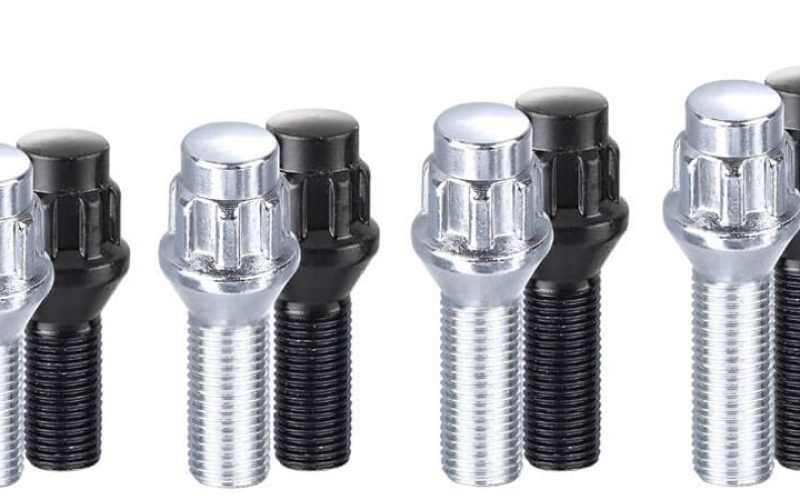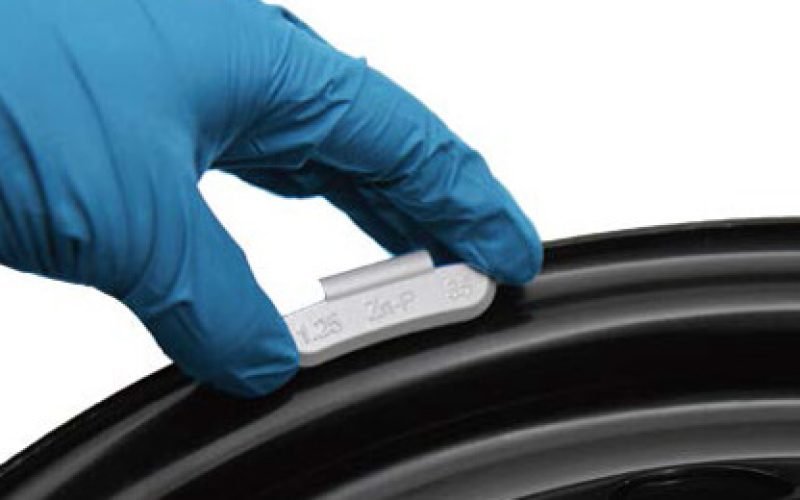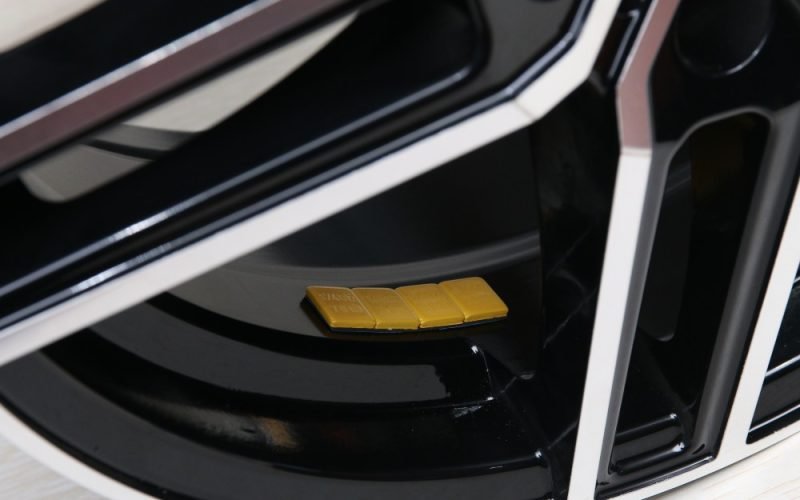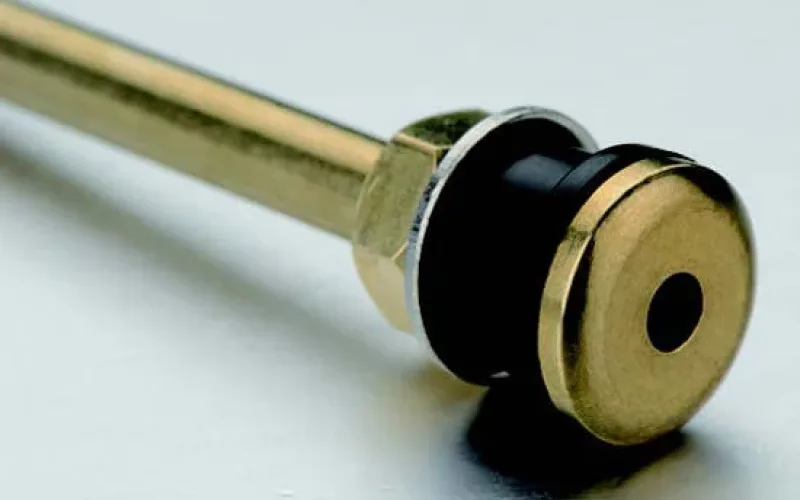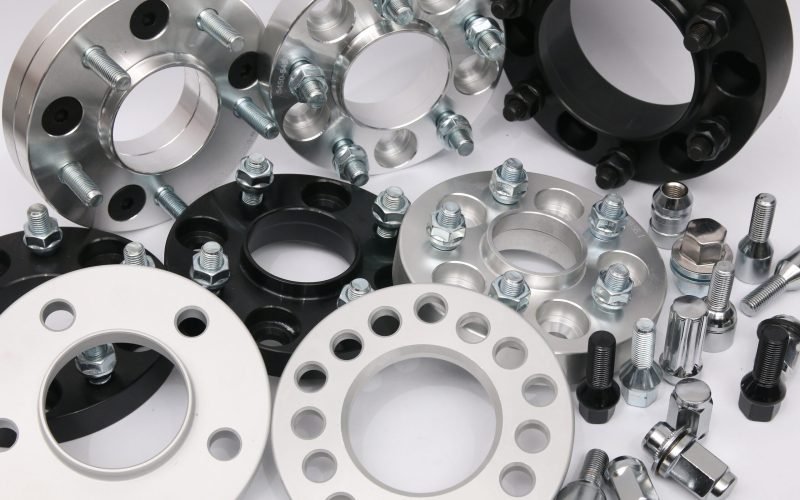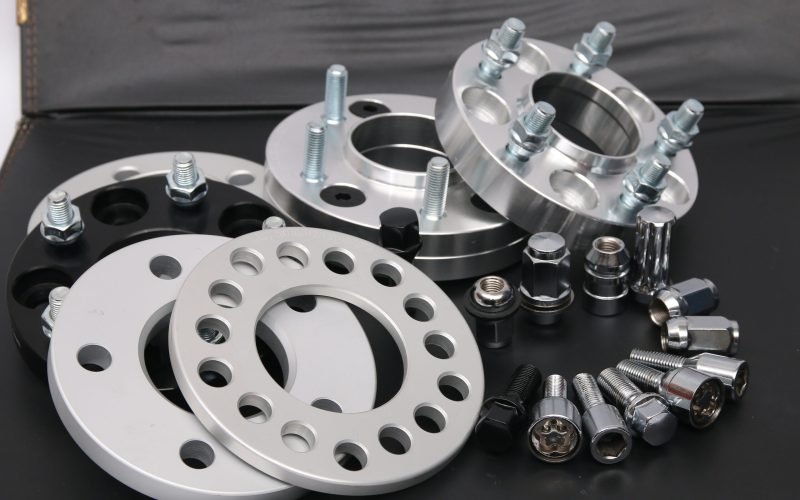

admin1
July 21, 2025
The Role of Tire Stem Valve Caps in Protecting Tire Pressure

Have you ever noticed those small tire stem valve caps on your car’s tires? They might look simple, but they play a huge role in protection. Tire valve caps help keep out dirt, moisture, and debris, which means better pressure control and fewer problems for your tires. When you lose a tire valve cap, your tire can start to lose pressure slowly. This can lead to underinflation, which causes heat, extra wear, and even tire blowouts. In fact, nearly half of tire breakdowns on the road happen because of pressure issues. You can boost tire safety and performance just by checking those caps.
Remember, the importance of valve caps goes beyond looks—they help keep your cars running smoothly and safely!
How Tire Stem Valve Caps Protect Tire Pressure

Sealing Out Dirt and Debris
When you look at your tires, you might not notice how much dirt and debris can build up around the tire valve stem. Every time you drive, your tires pick up dust, sand, and even tiny rocks from the road. If you lose your tire valve caps, all that grime can sneak into the valve. This is a big problem because dirt inside the valve can stop it from sealing tight. When the seal gets weak, air starts to leak out. You might not notice right away, but over time, your tire pressure drops. That means your tires can become underinflated, which hurts your car’s performance and safety.
Tire stem valve caps act like tiny shields. They keep out dirt, dust, and other debris. This simple layer of protection helps your tires hold air longer. If you ever spot a missing cap, it’s smart to replace it fast. Keeping your tire valve caps in place is one of the easiest ways to protect tire valves and prevent air leakage.
Tip: Check your tire valve caps every time you fill up with gas. It only takes a second, but it can save you from slow leaks and flat tires.
Preventing Moisture from Entering the Valve
Moisture is another enemy of your tire valve stem. Rain, snow, and even puddles can let water sneak into the valve if you don’t have a cap. When water gets inside, it can cause the metal parts of the valve to rust. Corrosion makes the valve weaker and can lead to air leaks. If you drive in places where road salt is common, the risk of corrosion goes up even more.
Here’s what happens when moisture gets inside:
- Water causes the metal valve core to corrode over time.
- Corrosion makes it hard for the valve to seal, so air leaks out.
- Road salts and chemicals make corrosion happen faster.
- Tire valve caps keep out water and dust, stopping corrosion before it starts.
Some tire valve stems use brass, which resists rust better than other metals. Still, even the best materials need protection. That’s why tire valve caps matter so much. They keep your tire pressure steady by blocking out moisture and keeping the valve stem clean.
Acting as a Secondary Air Seal
You might think the valve itself does all the work to keep air inside your tire. The truth is, tire valve caps add an extra seal against air loss. Some caps have rubber O-rings that press tight against the valve stem. This creates an airtight barrier. If your valve core ever gets a little loose or damaged, the cap can help prevent air from escaping.
Here’s how tire valve caps give you extra protection:
- Rubber O-rings in some caps make a strong, airtight seal.
- This secondary seal helps maintain tire pressure, even if the valve core isn’t perfect.
- The cap keeps out dirt and moisture, which can cause leaks or freezing inside the valve.
- Durable caps work well in all kinds of weather and driving conditions.
Most plastic caps protect the valve from dirt, but metal caps with O-rings can help prevent air leakage even more. For most cars, the main job of the cap is to keep out dirt and water. Still, having that extra seal gives you peace of mind. If you want the best protection for your tires, choose tire stem valve caps that fit snugly and check them often.
Note: Driving without tire valve caps makes it easier for air to escape and for dirt to get in. Always keep your caps on for the best protection and tire performance.
Risks of Missing or Damaged Tire Valve Caps
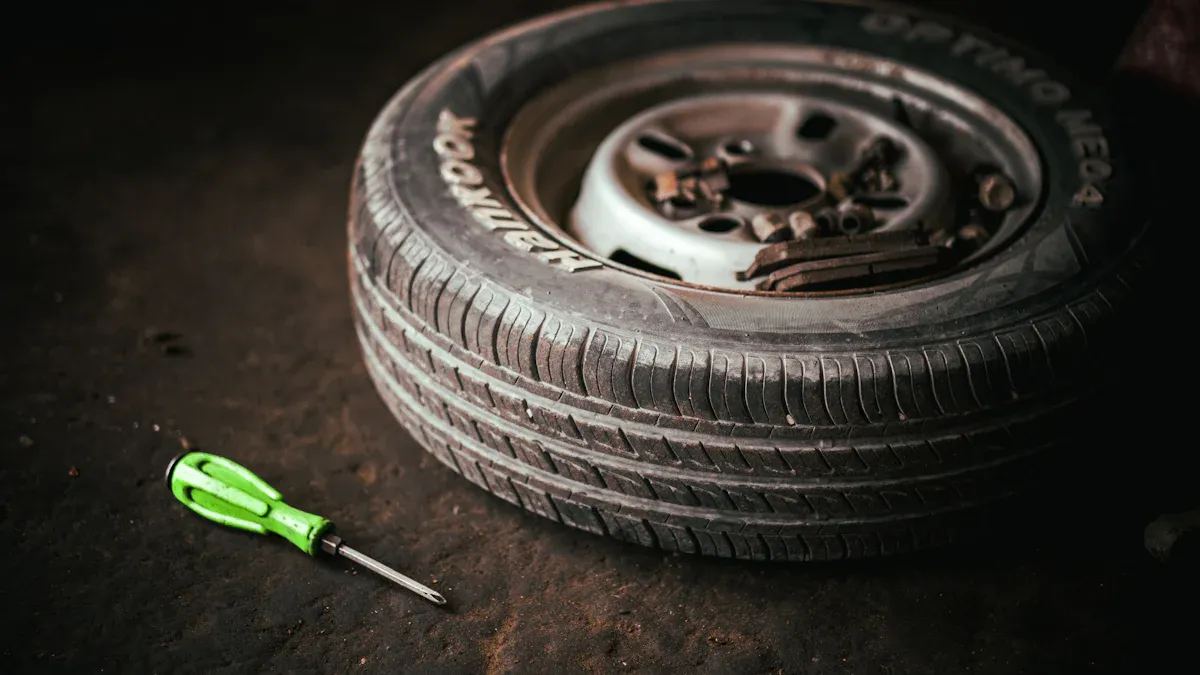
Increased Risk of Air Leaks
If you drive without tire valve caps, you open the door for trouble. Dirt and tiny rocks can sneak into the valve stem. When this happens, the valve core cannot seal tightly. You might not notice right away, but air starts to escape. Over time, you will see your tire pressure drop. This slow loss of air is called a tire air leak. It can leave you with low tire pressure, which makes your car harder to handle and less safe. Tire leaks often start small, but they can turn into big problems if you ignore them. Keeping tire valve caps in place helps you avoid these leaks and keeps your tires in good shape.
Potential for Valve Corrosion and Damage
Missing or damaged tire valve caps do more than just let air out. They also let moisture and road salts get inside the valve. When water enters the valve, it can freeze in cold weather. This can cause flat tires or even damage the valve core. Over time, moisture and salt make the metal parts corrode. Corrosion is a leading cause of valve stem damage and sensor failure. You might see the valve stem become brittle or cracked. Sometimes, the damage is so bad that you need to replace the whole valve. Tire valve caps act like a shield. They keep out water, dirt, and chemicals, so your valves stay strong and last longer.
- Valve caps prevent dirt and debris from contaminating or corroding the valve core.
- Moisture entering the valve can freeze, causing air loss or flat tires.
- Missing valve caps allow dirt to accumulate around the valve stem core, leading to air leakage.
- Valve stems can become corroded, brittle, or cracked due to moisture, road salts, and other environmental factors exacerbated by missing caps.
Safety Hazards from Underinflated Tires
Driving with low tire pressure is risky. Your tires do not grip the road as well, so stopping takes longer. You might notice your car feels wobbly or hard to steer. Underinflated tires also get hotter as you drive. Heat builds up and can cause a tire blowout. A blowout is when the tire suddenly bursts, which can make you lose control of your car. Many accidents happen because of underinflated tires. By checking your tire valve caps and replacing any that are missing or damaged, you help keep your tire pressure steady and your ride safe.
Tip: Make it a habit to check your tire valve caps every time you check your tires. This small step can help you avoid tire leaks, valve damage, and dangerous blowouts.
Types and Materials of Tire Valve Caps
When you look at your tires, you might not realize how many options you have for tire valve caps. These small parts come in different materials and styles, each with its own benefits. Picking the right tire valve caps can make a big difference in how well your tires hold air and how long they last.
Plastic vs. Metal Valve Caps
You’ll find two main types of tire valve caps: plastic and metal. Each type has its own strengths. Check out this table to see how they compare:
| Feature/Aspect | Plastic Valve Caps | Metal Valve Caps |
|---|---|---|
| Material | Lightweight, cost-effective plastic | Aluminum or stainless steel, durable metal |
| Durability | Prone to cracking, less durable in harsh conditions | Superior durability, corrosion-resistant |
| Environmental Resistance | Suitable for mild climates, basic protection | Withstands harsh weather, high temperatures |
| Seal Effectiveness | Basic protection against dirt and moisture | Often include rubber washers or O-rings for tight seal, better at preventing air leaks and water intrusion |
| Maintenance | May need frequent replacement due to cracking | Long-lasting, reduces maintenance and replacement costs |
| Installation/Removal | Easy installation but may seize or crack over time | Resist sticking/seizing, easier removal after long use |
| Recommended Use | Everyday driving, mild climates | Heavy-duty use, trucks, sports cars, off-road vehicles |
| Cost | Budget-friendly | Higher initial cost but better long-term value |
Plastic tire valve caps work well for basic protection. They keep out dirt and moisture, but they can crack if you drive in tough weather. Metal tire valve caps, made from aluminum or stainless steel, last longer and resist corrosion. Many metal caps have rubber seals that help keep air in and water out. If you want the best seal for your tire, metal caps are a smart choice.
Tip: If you drive in harsh weather or off-road, metal tire valve caps can help your tires last longer and stay safer.
Specialty Valve Caps (Anti-Theft, Pressure-Indicating, Color-Coded)
Some tire valve caps do more than just cover the valve. Specialty caps add extra features to help you care for your tires. Anti-theft tire valve caps have special designs that make them hard to remove without the right tool. This keeps your tire valve caps safe from theft. Pressure-indicating tire valve caps show you if your tire pressure is low. They use color codes—green means good, yellow means check soon, and red means add air now. Color-coded tire valve caps also help you match caps to different tires or vehicles.
Specialty tire valve caps give you more than just a seal. They help you spot problems fast and keep your tires in top shape. You get peace of mind knowing your tire valve caps are working hard for you.
Choosing the Most Effective Cap for Your Needs
Picking the right tire valve caps depends on how and where you drive. Here are some things to think about:
- Match pressure-indicating tire valve caps to your vehicle’s recommended tire pressure.
- If you have run-flat or puncture-resistant tires, pressure monitoring caps can help you spot low pressure before it becomes a problem.
- Choose tire valve caps with rubber seals if you want the best air retention and protection from dirt and moisture.
- For everyday driving in mild weather, plastic tire valve caps work fine. For heavy-duty use or harsh climates, metal tire valve caps are better.
- Always check that your tire valve caps fit snugly and replace them if they crack or get lost.
Note: Good tire valve caps help keep your tire pressure steady, protect the valve core, and make tire maintenance easier. Don’t overlook these small but mighty parts!
Importance of Valve Caps for Tire Maintenance
How to Check Your Valve Caps
You might think tire valve caps are just small covers, but they play a big part in tire maintenance. Checking them is easy and helps you avoid problems with consistent tire pressure. Here’s a simple way to check your tire valve caps:
- Listen near each valve stem for a faint hissing sound. This could mean air is leaking.
- Put a little soapy water at the base of the valve stem. If you see bubbles, you have a leak.
- Look closely at the valve stems for cracks or discoloration.
- Wipe the valve stems with a damp cloth to keep them clean.
- Make sure the tire valve caps fit snugly, but don’t force them.
- Use a good tire pressure gauge when checking pressure, and be gentle to avoid damage.
- Add valve stem checks to your regular tire maintenance routine.
Tip: Clean valve caps and stems every time you wash your car. This keeps dirt away and helps with maintaining tire pressure.
When and How to Replace Valve Caps
You should replace tire valve caps every time you rotate your tires or check your air pressure. Most people rotate their tires every 5,000 to 7,000 miles. If you see cracks, leaks, or damage, swap out the caps right away. For proper installation of tire valve caps, follow these steps:
- Make sure the new cap matches your tire’s valve.
- Remove the old cap by hand or with a tool.
- Put the new cap on by hand, turning it until it feels snug.
- Don’t over-tighten, or you might damage the valve stem.
- Double-check that the cap is sealed tight.
Regular replacement and proper installation help you maintain tire pressure and keep your tires safe.
Best Practices for Tire Pressure Maintenance
Keeping proper tire pressure is key for safety and tire life. Always check your tire pressure when the tires are cold. Use a reliable gauge and follow your car’s manual for the right numbers. Here’s a quick checklist:
- Check tire pressure at least once a month.
- Remove the tire valve caps and keep them safe while checking.
- After checking, put the caps back on to protect the valves.
- Inspect tire valve caps for damage during every tire maintenance session.
- Clean and replace caps as needed to support consistent tire pressure.
Maintaining tire pressure and good tire valve maintenance help you avoid flats and keep your ride smooth. Snap-in valve stems and tire valve caps work together to seal in air and keep your tires at proper pressure.
Remember: Consistent tire pressure means better fuel efficiency, safer driving, and longer-lasting tires.
Quality Matters: Choosing Reliable Tire Stem Valve Caps
The Value of Premium Materials and Manufacturing
When you pick tire stem valve caps, the materials and how they are made really matter. Premium materials like stainless steel, aluminum, brass, and even titanium give you strength and long-lasting protection. These metals resist rust and damage from the weather. Manufacturers use precision CNC machines to shape every cap perfectly. This means each cap fits just right and looks great on your wheels.
You also get extra protection from special surface treatments. Anodizing, polishing, plating, and powder coating help the caps stand up to rain, dirt, and road salt. Before any cap leaves the factory, it goes through strict quality checks. Certifications like ISO 9001:2015 and ROHS show that the caps meet high standards. Here’s what you get with premium materials and advanced manufacturing:
- Strong, corrosion-resistant metals for durability
- Perfect fit from precision machining
- Extra protection from special coatings
- Strict quality inspections and certifications
Choosing high-quality caps means you spend less time worrying about leaks or damage.
Fortune’s Commitment to Quality and Safety
You want tire valve caps you can trust. Fortune delivers that trust by using advanced equipment and skilled workers. The company’s team checks every step, from design to packaging. They make sure each cap meets industry standards. Fortune offers a wide range of products, so you can find the right fit for your vehicle. Their technicians help with installation and answer your questions. You also get support after your purchase, so you never feel left out.
Fortune pays attention to details like valve length, pressure rating, and heat resistance. They test their products often to keep quality high. If you ever need advice, their customer service team is ready to help. With Fortune, you know your tire valve caps will protect your tires and keep your ride safe.
Why Certified and Tested Valve Caps Make a Difference
You might wonder if certified valve caps really matter. The answer is yes! Certified and tested caps give you peace of mind. They keep your tire pressure steady and help your tires last longer. High-quality double seal caps stop air leaks, which means better fuel efficiency and smoother driving. These caps also protect the valve stem from dirt and moisture, so you avoid costly repairs.
Here’s how investing in quality pays off:
1. You save money by avoiding frequent tire replacements. 2. Your tires stay at the right pressure, so your car handles better. 3. Maintenance gets easier because you can check pressure without removing the cap. 4. Heavy-duty caps work well for trucks and commercial vehicles, too. 5. You get long-term savings and better performance from your tires.
Drivers and fleet owners know that using high-quality caps keeps their vehicles safe and reliable. Consumer feedback shows that people want real protection, not cheap imitations. When you choose certified and tested valve caps, you protect your tires and your safety.
You might think tire valve caps are just small covers, but they play a big role in keeping your ride safe. These caps protect the valve from dirt and moisture, which helps you avoid slow leaks and keeps your pressure steady. When you check and replace them regularly, you help your tires last longer and support better fuel efficiency.
- Regular inspection and cleaning prevent air leaks and valve damage.
- Using high-quality caps from trusted brands like Fortune gives you peace of mind.
- Always pick the right cap for your valve and make sure it fits snugly.
Take care of your tire valve caps, and you’ll boost safety, save money, and enjoy smoother drives.
FAQ
What happens if I lose a tire stem valve cap?
If you lose a tire stem valve cap, dirt and moisture can get into the valve. This can cause slow air leaks. You might notice your tire pressure drops over time. Replace missing caps right away to keep your tires safe.
Can a tire stem valve cap fix a leak?
A tire stem valve cap cannot fix a leak. It helps prevent new leaks by keeping out dirt and water. If you notice a leak, check your tire pressure monitoring system and visit a tire shop for repairs.
How often should I check my tire valve caps?
You should check your tire valve caps every time you check your tire pressure. Add this step to your tire maintenance system. Look for cracks or missing caps. Replace any damaged ones to keep your tires in good shape.
Are metal valve caps better than plastic ones?
Metal valve caps last longer and resist damage from weather. They often have rubber seals for extra protection. Plastic caps work for basic use, but metal caps give you better durability, especially if you drive in tough conditions.
Do valve caps affect the tire pressure monitoring system?
Valve caps do not affect how the tire pressure monitoring system works. They protect the valve from dirt and moisture. This helps your sensors last longer and keeps your tire maintenance system running smoothly.
Tip: Always keep spare valve caps in your glove box. You never know when you might need one!
